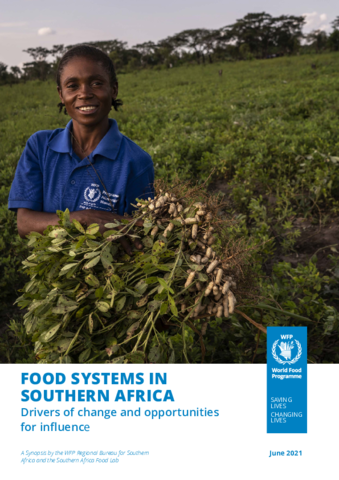
The analysis is intended to raise awareness of the potential to shape future outcomes in this complex multi-faceted and interrelated systems and argues that the World Food Programme (WFP) can play a major role as a direct stakeholder and enabler of partnerships in the region. Based on this analysis, plausible scenarios for Southern African food systems will be constructed to enable WFP to assess how the organisation might influence these scenarios over the coming decade. The foresight gained from a scenario process helps to inform necessary action. In particular, the scenarios help in identifying leverage points based on WFP’s key mandate. The analysis of ‘driving forces’ helps determine certain elements of Southern Africa’s future that are difficult to predict with complete certainty. Understanding what these are is important because it increases the sense of urgency to act; an appropriate response can decrease the impact of these uncertain development trajectories. A reflection of southern African food systems over past few decades reveals that the way these systems have unfolded has been highly non-linear, with random, unpredictable events affecting it. Looking ahead, this uncertainty seems more acute. As outlined in this report, the various ‘driving forces’ in these food systems are co-dependent (across space, time and sectors) and create fertile ground for a large combination of potential shocks and stressors, places they could happen and pathways they could propagate through to create a high impact. As WFP, the challenge and opportunity is to make sense of this uncertainty is a systematic way so as to adapt to challenges and to act sooner rather than later.
